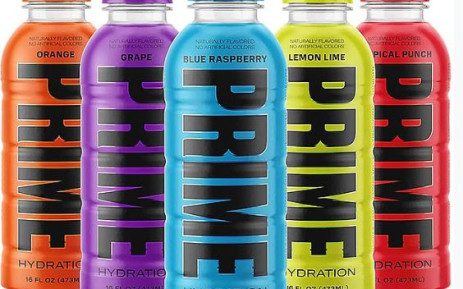With the recent buzz around energy drinks, brought on by the recent launch of the much-hyped Prime energy drink, the safety of these beverages has come under scrutiny, especially when it comes to children. However, it’s important to note that not all energy drinks are created equal.
“For instance, Prime, currently available in South Africa, is a hydration drink that does not contain caffeine or stimulants,” said Omy Naidoo, wellness dietician at Newtricion.
Explaining the difference between a hydration drink and an energy drink, Naidoo noted that hydration drinks provide glucose and electrolytes for replenishment, while energy drinks contain stimulants such as caffeine, taurine, and ginseng.
“These stimulants can have adverse effects on the body, particularly when consumed in high amounts. Moreover, energy drinks that contain artificial sweeteners have been linked to changes in gut bacteria, affecting glucose metabolism and potentially increasing the risk of diabetes.”
The dangers of energy drinks for children and adolescents are primarily linked to high caffeine intake. Excessive caffeine consumption can lead to high blood pressure, sleep disturbances, headaches, stomach aches, and hyperactivity.
During adolescence, when bone development is critical, caffeine can interfere with calcium deposition, leading to weaker bone formation. Other side effects include increased anxiety symptoms and irritability.
“Interestingly, even infrequent consumption of energy drinks during adolescence has been associated with problematic health behaviours, such as increased smoking, alcohol consumption, problematic social media usage, shorter sleep, and poor food choices. This is because caffeine can affect neural pathways in the brain, leading to dependency behaviours,” he added.
According to the American Academy for Paediatrics, caffeinated beverages should be avoided for children under the age of 12. For adolescents between 12 and 18-years-old, caffeine intake should be limited to 100mg per day, equivalent to an old-fashioned cup of coffee or two cups of tea/diet soda or half a bottle of caffeinated sports drinks.
“Sugar-free energy drinks, with their low calorie and high caffeine content, have become popular among young females with eating disorders who use them to maintain or lose weight. This trend can be dangerous and potentially harmful to their health.”
In conclusion, hydration and energy drinks are here to stay, but it’s important to keep in mind that they should not be the sole source of hydration. Children should consume six to eight cups of water daily, along with fruit juices and milk for bone health
“As parents, we must be mindful of the usage of these drinks and encourage moderation. Sometimes, the old-fashioned cup of coffee can be a better alternative for enhancing concentration and focus on adolescents aged 12 to 18 years,” concluded Naidoo.
Follow @SundayWorldZA on Twitter and @sundayworldza on Instagram, or like our Facebook Page, Sunday World, by clicking here for the latest breaking news in South Africa.



